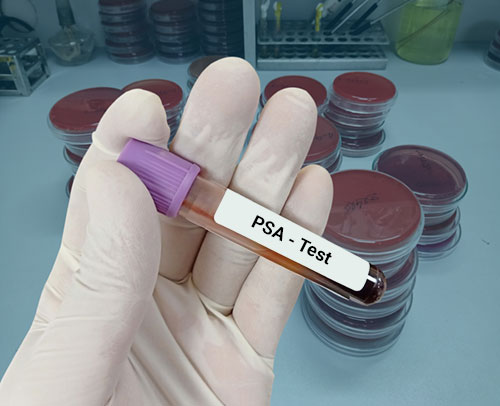What Is PSA?
Prostate gland is a pear-shaped organ, located encircling the initial part of the urinary passage where it exits from the bladder. PSA is a glycoprotein produced by the prostate gland.
Normal value of PSA varies with age and the size of the prostate gland. Mostly, it is less than 4 ng/mL.

When & for Whom Is PSA Testing Done?
PSA testing is done as mass screening, high-risk screening or opportunistic screening.
Mass Screening: Done as part of a regular health check in men, in the age group of 55-69 years when prostate-related issues are common.
High Risk Screening: Done in men with a family history of prostate cancer, especially young age prostate cancer or prostate cancer-related death in the family. Here, screening should start at the age of 45 years.
Opportunistic Screening: Done in patients presenting to the hospital with urinary problems.
Why Is It Done?
PSA is elevated in various diseases of the prostate like inflammation, infection, age-related enlargement and also in cancer. If PSA is elevated, then we need to do further investigations such as uroflow study, urine examination & culture, and multiparametric MRI scan of the prostate, to identify the cause.
How to Treat?
If there is any evidence of urinary passage obstruction in the uroflow test, then we give medicines to release the obstruction. Infection should be treated promptly with appropriate antibiotics as per the culture.
If the MRI scan result shows suspicion of prostate cancer, then biopsy needs to be done to confirm the same. Even in the case of prostate cancer, complete cure can be provided if detected in the early stages.

Dr. Aarthy. P
Associate Consultant Urology & Robotic Surgery,
Kauvery Hospital Chennai

